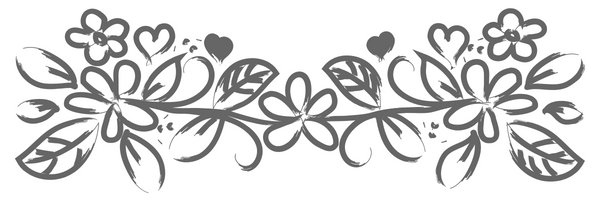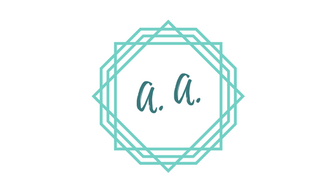OVERALL: ★★★★½/5
(Goodreads summary here.)
When I read The Song of Achilles back in March, it only took about 30 pages for me to know that it would become one of my absolute favorite books. Circe never quite reached that status. It’s a phenomenal book and is definitely one of my new favorites, but it was just missing that something that Song of Achilles had. I loved Circe, but I am struggling to reconcile some aspects of it.
I’m very hesitant to comment on the actual story of the novel, since it is of course based off Greek myths, and so isn’t a completely new or original plot. Still, Miller’s artistic and storytelling hand is clearly visible, and in the best way. The story is intricately woven in ways that turn it into a fascinating tale of learning what it means to be human. The intriguing thing that often makes myth retellings fresh and new is that there is rarely just one version of a story. The author, then, has the liberty to draw from various sources and choose which they can work with best.
I read the Odyssey in my sophomore year of high school, so about 4 years ago. I know I didn’t give it as much thought or attention as I probably should have, so my recollection of the story, and Circe’s in particular, is very limited. I’ll admit I did a quick Wikipedia search of her to be sure I had my facts completely straight. However, I found that the search wasn’t completely necessary. Sure, it was a nice refresher, but Miller’s story is very much her own. If you think you’re going into Circe and getting a snippet of the Odyssey from a different perspective, you’re going to be in for a surprise. Yes, this is Greek mythology, but it’s also something else entirely.
The novel opens with Circe’s “childhood” (is it still childhood if they’re a god?) Immediately, her character is humanized. We see her in situations that we could be in as well. Circe’s godhead is almost irrelevant to her story; she doesn’t act like the gods we know, and that’s the point. She struggles because she’s different, which is something everyone can identify with on some level. Her character may originally have this distinction, but Miller extends it so that we can forget that Circe isn’t mortal. Part of it may be because Circe herself lets herself forget, but it is still all in Miller’s portrayal. It’s a different kind of interpretation of a god. Although she’s only a minor god, Circe could’ve easily been a typical god: power-hungry, fickle, and ruthless. But that’s not who she is. Even when she comes into her powers, she is humble and willing to learn on her own, unlike her siblings. She cherishes the small acts, both in life and in her magic. That sort of subtlety really completes her as a character for me. It’s an example of both Circe’s and Miller’s attention to detail that gives Circe the kind of depth that makes her a well-rounded, whole character who seems real beyond the limitations of the page.
I loved the evolution of Circe’s independence. When she is exiled, she is appalled and apprehensive and angry. It furthers her human qualities but also forces her to learn and care for herself. Her separation comes to define her. Although she does come to seek companionship, it’s not because she feels she needs it, but because she wants it. This distinction seems especially important, given the setting of the novel and the literary canon of a woman needing a man to be happy.
That being said, I do have some issues with the emphasis on Circe’s romances. Like I said above, I understand completely that they didn’t change her independence. My main complaint came toward the end of the book. I felt like somewhere in the middle of her last romance, she became too focused on her love life. It’s perfectly fine that Circe found someone she wanted to be with, but something about it rubbed me the wrong way. I can’t really articulate what or why, but something seemed off about her character at the very end. It might just be because I would’ve rather seen her end her story without a love interest, but I also understand that might have been an artistic liberty with Circe’s myth that Miller didn’t want to take, which I can accept. Despite all that, I recognize that Circe’s choices were all her own, which I do appreciate and were definitely in character for her.
It comes as little surprise, but Miller’s craft is truly impeccable. I was completely enthralled by both the story and how it was told. The writing is fluid and flowery, but it never overwhelms you. Instead, it enchants in ways that, in my opinion, are largely unmatched. Despite the attention to detail and description, I never felt like the story stopped moving forward. All the lengthy, introspective passages had an obvious purpose and were still a delight to read, even if the action had taken a pause. And that’s the thing: there isn’t a lot of action in this book, but it still feels like there is, at least to me. Circe’s thoughts are just as interesting as any battle scene and add so much more to the novel than a fight or magic scene would have. Everything about the writing was really just perfect for me.

All in all, Circe is a brilliant retelling of a little-known story that gives dimension and depth to a notorious character from the Classics. Miller gives Circe a voice where it is largely forgotten and does so in a compelling and moving fashion.
What did you think of Circe? What author has your favorite style?
Keep reading,



I have to read it ASAP 😍 ❣
LikeLiked by 1 person
Yes!! It’s SO good!
LikeLike
Good review! I’ve recently heard of this book and now have it on my TBR – I’ve heard that it isn’t as good as her previous but as I’ve read neither I probably wouldn’t be able to compare! I may start with Circe first though!
LikeLiked by 1 person
Great review! I’ve heard so many different things about this book! I can’t wait to get to it at some point! Ha ha!
I do agree with you, though. It’s funny that they always have a god’s “childhood” dude… You’re immortal, how are you going to “grow up?” or do you start as a child, and then just stop “growing up” when you hit adulthood??… I don’t get it. 😕
LikeLiked by 1 person
[…] Circe by Madeline Miller (review) […]
LikeLike